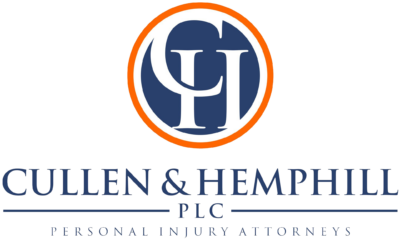From the day you found out that your first child was joining your family, you have worked hard to protect your children. However, that protection does not—and should not—include being with your child every minute of every day.
Instead, you carefully consider the daycares, the doctors, the activity leaders, the religious teachers, the babysitters, and even the relatives with whom you leave your child. You trust them, but would you really know if your child was in danger? Would you know if your child was being sexually abused? Would you know what to do if the answer was yes?
Signs of Sexual Abuse
Children may show different signs of abuse depending on their age, maturity, and personality. Some of the signs of potential abuse include:
- Redness or swelling in the genital area
- Urinary tract infections
- Anxiety
- Chronic stomachaches, headaches, or other ailments
- Withdrawal
- Depression
- Anger
- Perfectionism
- Sexual behavior or language that is not age-appropriate
If your child shows any of these signs then you should talk to your child’s doctor about whether your child may have been the victim of sexual abuse.
Adults Who May Abuse Children
It can be difficult to think of all the different people who have been with your child when you were not present and to suspect one of them of committing this unthinkable and despicable crime against your child. However, it is important to include everyone on your list.
Commonly, the people who commit child abuse are people in power. They may even be people that you trust such as your child’s:
- Teacher
- Daycare provider
- Activities leader
- Sports coach
- Doctor
- Religious leader
Some of these people may have made a career out of working with children. They may work in schools, daycares, pediatric medical practices, or youth organizations such as the Boys and Girls Club of America, Boy Scouts, Girl Scouts, 4-H, YMCA, YWCA, and other groups.
The Long-Term Effects of Childhood Sexual Abuse
Sexual abuse may have changed your child forever. While every child will react differently, you should be prepared for your child to experience some of the following issues in the future:
- Anxiety
- Depression
- Guilt, shame, and self-blame
- Eating disorders
- Sexual problems
- Relationship problems
How the sexual abuse will impact your child’s future will depend on many factors including the healthcare and counseling that your child receives right after the abuse and in the years to come.
How to Help Your Child Recover From Sexual Abuse
The State of Florida may pursue a criminal case against the person who committed this horrific crime. The criminal case may result in jail time for the perpetrator of the crime, but it will not result in damages for your child.
The criminal process is important, but it is not a substitute for pursuing a civil sexual abuse case. As your child’s parent, you can hold the person who did this, and the organization that allowed it to happen, accountable in civil court. You can fight for your child’s compensation for past and future medical expenses, therapy, out-of-pocket costs, physical pain, emotional suffering, and other damages.
You can help your child be compensated for these things by pursuing a civil case with the help of an experienced attorney. A lawyer can do a full investigation, gather the required evidence, and make the compelling arguments that are necessary to get your child a fair recovery.
However, as the parent, you need to take the first step and contact an attorney today. The time to take action is limited. In Florida, your child has the right to file a sexual abuse case within seven years of reaching age 18, within four years after leaving the dependency of his abuser, or within four years of discovering both his injury and the cause of his injury. However, the sooner a case is filed the sooner your child can get the financial benefits of a legal settlement. Also, there is a better chance of finding reliable evidence to prove your child’s claim. For these reasons, it is important that you take action as soon as possible on behalf of your child.
As parents, we feel for what you and your child are going through—and as lawyers, we are going to fight with everything that we have to help your child recover. Throughout the process, we will always be respectful of your child and put his emotional needs first. To learn more, call us and let’s talk about how we can help your family. We would be pleased to provide you with a free, no-obligation initial consultation.

 Call Us Now
Call Us Now Email Us Now
Email Us Now